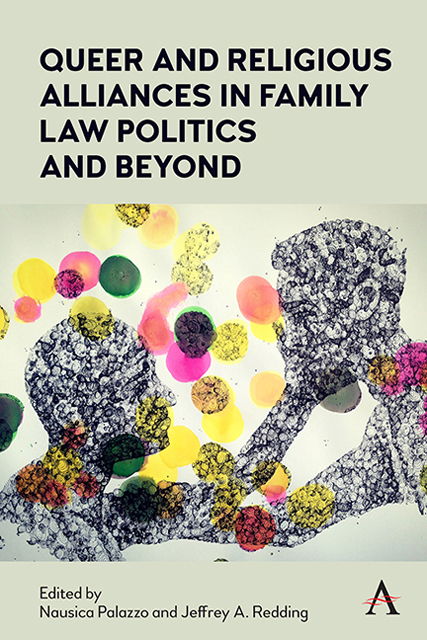Chapter 6 - The Abolition of Legal Marriage in Israel as a Potential Queer–Religious Project
Published online by Cambridge University Press: 09 December 2022
Summary
Since the State of Israel's founding, the nature of legal marriage and divorce has been the focus of public and political controversy. Israel is the only developed country that bestows upon religious institutions a monopoly over marriage and divorce. No civil marriage exists in Israel, and no uniform territorial law applies to either marriage or divorce. The current legal framework has been continually criticized for restricting access to marriage and divorce, due to the patriarchal character of religious marriage laws and their implications for women. The framework has furthermore been criticized for infringing upon freedom of conscience and religion.
Israeli public and academic discourses are replete with proposals to end the religious monopoly over marriage. These proposals have focused on establishing either a parallel civil institution that would coexist with legalreligious marriage or an exclusive civil framework for marriage. No proposal has considered abolishing the legal status of marriage altogether, despite growing scholarly interest in the idea. This chapter takes the first step toward filling this gap. In line with this book's theme, this chapter explores whether abolishing legal marriage in Israel could be in the mutual interest of both queer activists and certain religious groups.
This chapter proceeds as follows. The first section surveys the problem of marriage and divorce in Israel. The chapter then situates our inquiry within the broader academic scholarship around abolishing legal marriage. It then explains why abolishing legal marriage, especially in the particular context of Israel, could be understood as a “queer project” championed by those who oppose normativity in sexual kinships. Ultimately, the chapter moves to explain how such a legal shift could also be in the interest of religious groups. From the juxtaposition of these starkly different groups and the examination of their overlapping interests in the Israeli context, we advance an argument regarding their potential collaboration.
Legal Background: The Laws of Marriage and Divorce in Israel
There is no civil marriage under Israeli law. In fact, no uniform territorial law applies to either marriage or divorce; instead, the “personal law” of the marital parties governs these matters.
- Type
- Chapter
- Information
- Queer and Religious Alliances in Family Law Politics and Beyond , pp. 105 - 124Publisher: Anthem PressPrint publication year: 2022

